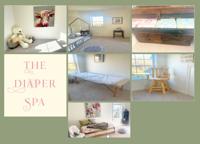Thank-you notes can help fix a job interview blunder.
Versing yourself in the company you are interviewing with will show a deeper commitment.
Making sure your home office conveys professionalism during a Zoom interview can boost your chances.


What’s Working
Welcome to job searching 2022.
New Hampshire and the nation are in the midst of a giant economic upheaval — with many people seeking new jobs by staring at computer monitors rather than sitting across the table from their interviewers.
“It is really daunting when you start to think about job hunting,” said Shannon Herrmann, senior recruiting manager at Alexander Technology Group in Bedford.
Initially, identifying promising candidates often involves using software that scans resumes for keywords rather than sizing up people face to face in interviews.
“It’s a hard thing because we’re just reviewing resumes and don’t actually get to see the person behind it,” said Michelle Keefe, vice president of human resources at Single Digits in Bedford, who joined Herrmann at a recent virtual forum.
Trisha Leavitt, who recently attended a job fair, said she spends a few hours a day on her job search.
“It’s pretty much a full-time job,” said the Lyndeborough resident, laid off from her HVAC job in January.
To make the job search easier, here are seven areas to focus on if you’re looking for a new job or thinking of ditching your current one.
Be prepared
Long before your interview, you need to research prospective employers. Look up company employees on LinkedIn for their longevity.
“If you’re seeing that a team has had a lot of turnover, that might be a question to ask in the interview process,” Herrmann said during an online forum on hiring and job hunting in the virtual world organized by the New Hampshire Tech Alliance.
Network remotely with people who share the same title you’re seeking in that company or at others.
Review your resume, LinkedIn profile and remote technology. Check to ensure your resume contains keywords pertaining to your job, so resume-scanning software will choose yours. Include awards you have received.
“If your resume says something different from your LinkedIn, that’s a pretty big red flag,” Herrmann said.
For the interview, remove distractions, have a glass of water and resume on hand and be prepared with answers to commonly asked questions.
Be personable
A Zoom view featuring a comfortable workstation gives the interviewer confidence that the job seeker is set up to work remotely, Herrmann said.
Build rapport right away when the interviewer asks how you are doing.
“Come up with maybe a more dynamic response that feels genuine to you,” Herrmann said. “‘Thanks for asking. My day is going well. I listened to a really interesting podcast on France this morning. It got me excited to travel again.’”
That isn’t a time-waster.
“By doing this, you’re opening yourself up to create a more memorable experience and a more genuine experience with the person on the other side,” Herrmann said. “In the digital world, it’s so easy to hop into meetings and forget there are people on the other side of the camera.”
Be candid about change
In New Hampshire, which recently has seen the biggest percentage gain in people quitting their jobs, plenty of people are not only changing employers, but entire industries.
“Very often people struggle with making a career change because of the financial situation there,” Keefe said.
Volunteering can gain you experience and knowledge in a different field.
And check out YouTube videos to acquire some fast expertise.
Herrmann said hiring managers fear “the person is going to leave the job quickly” if given more money or a better opportunity.
If changing careers, be upfront about why.
“I think you would need to just note on there (the resume) what you are seeking, like ‘Professional seeking a career change in X, Y and Z,’ ” Keefe said.
“If you had recent training (for a career change), put it above your most recent job history,” Herrmann said. For example: “‘Just completed a course in Web design.’”
Be upbeat but honest
Be prepared for the question nearly everyone asks.
“I think you want to accentuate your strengths,” Keefe said: “I’m a really hard worker. I’m dedicated. I’m loyal. I’m resourceful.”
Don’t just say it, but explain how you were resourceful or dedicated.
“On the weaknesses side, again, it’s OK to be a little bit vulnerable,” Keefe said. “Don’t just have a problem. Try to have a possible solution.”
Be hungry, humble, smart
Hitting it off with the interviewer can earn you points.
“I truly believe chemistry is so important through the interview process because if you’re not getting that just in an everyday conversation, you’re not going to be happy when you have to start working with all these people on a daily basis,” Keefe said.
Asked by a forum viewer about the line between coming off confident vs. egotistical during an interview, Keefe leaned on the words of an executive at a company where she previously worked.
“We need to hire people that are hungry, humble and smart — and those are words I live by all these years later.”
Job seekers need to come across as human and show their soft skills.
“Are you driven? Are you motivated? Are you resourceful? Are you able to think through a situation logically?” Keefe said. “And so as much of that as you can show in this kind of a one-on-one or video setting, those are the things that are going to set you apart.”
Be prudent
Avoid the temptation to complain.
“Don’t speak poorly of former positions, managers or companies,” Herrmann said. “This is a huge one. It will almost always get you eliminated from a position because if you’re complaining about your former position or your former managers or company, then you’re going to complain about the next place you’re at, too.
“So it’s a big red flag and oftentimes companies in interviews will just move on from you completely if they hear you speak poorly,” Herrmann said.
Be thankful
Herrmann said thank-you notes are a good idea, but don’t send the same ones to multiple interviewers at the same company.
Keefe said the brief missives “go a long way.”
She recalled a guy who felt he blew an interview question and explained it in his thank-you message.
“The hiring manager came over to me and said, ‘Look at this guy, he took accountability for something that he knew went a little bit sideways and I’m really happy he sort of put it out there and was able to say, ‘I kind of screwed up here in the interview, but I want you to know why I got so caught up on that question,’ ” Keefe recalled.
The guy got the job.




